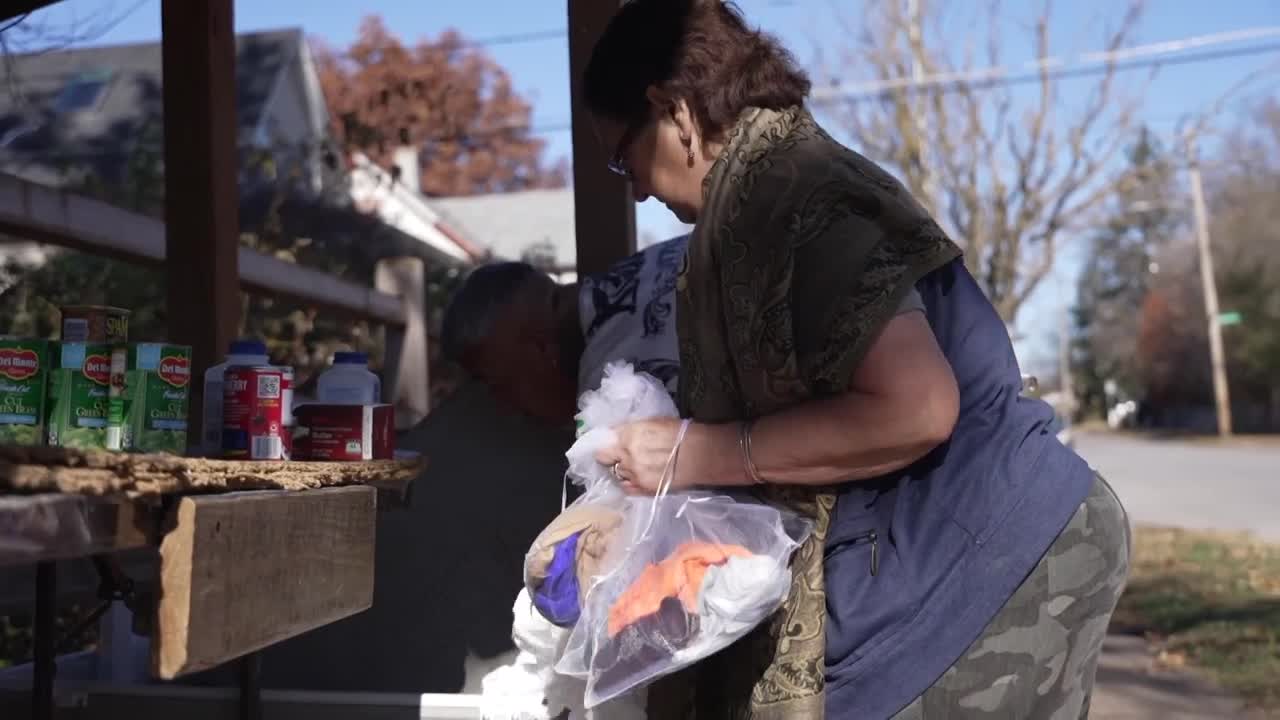OMAHA, Neb. (KMTV) — "It's often bare and people do drop off donations and they're gone within 20 minutes." The Deer Park Pantry began in 2020, but over the years donations have decreased while demand has grown.
- Kitty Brougham started the Deer Park Pantry to help struggling families during the pandemic.
- Brougham said mini-pantries like hers are often the first step for those without transportation or who feel intimidated by larger food banks.
- As more neighbors start pantries of their own following a month of uncertainty over SNAP benefits, Brougham wants to share what she's learned over the years.
BROADCAST TRANSCRIPT:
As Thanksgiving approaches and uncertainty looms over SNAP benefits, community food pantries across Omaha are becoming more crucial than ever. One South Omaha woman has kept her neighborhood pantry running for nearly five years, even as donations dwindle and demand continues to grow.
Kitty Brougham started the Deer Park Pantry outside her home at 20th and Deer Park Boulevard in 2020 as a way to help neighbors struggling during the pandemic.
"So we have this cooler and I put ice packs in it, so it stays relatively cool," Brougham said.
For the first two years, donations often overflowed from the small pantry. Now, the situation has changed dramatically.
"The last couple of years, it's often bare and people do drop off donations and they're gone within 20 minutes," Brougham said.
Despite fewer donations, demand hasn't slowed as more neighbors face food insecurity and wages lag behind rising costs. The pantry serves as a crucial bridge for those who might otherwise go without. Oscar Flores, a Deer Park neighbor, shared why he visits.
"Sometimes I come into this table for pick up food for people living in the streets, homeless or people who got no money, no jobs," Flores said.
The timing is particularly critical as many neighbors could soon lose SNAP benefits under new eligibility requirements, even though the government has reopened after last month's uncertainty.
Brougham said mini-pantries like hers are often the first step for those without transportation or who feel intimidated by larger food banks.
"If there's something right in their neighborhood that they can just pick up and and walk there and and then carry a sack home, they'll do that," Brougham said.
As more neighbors start pantries of their own, Brougham wants to share what she's learned over the years.
"Make sure it's protected from the elements. Know that there is some work involved in this," Brougham said.
Even when maintaining the pantry isn't easy, Brougham keeps going because to her, the people she serves aren't strangers – they're each a part of her community.
"The homeless people I often know by name, you know, and I know their stories and so they're not scary people in the neighborhood, they're neighbors," Brougham said.




